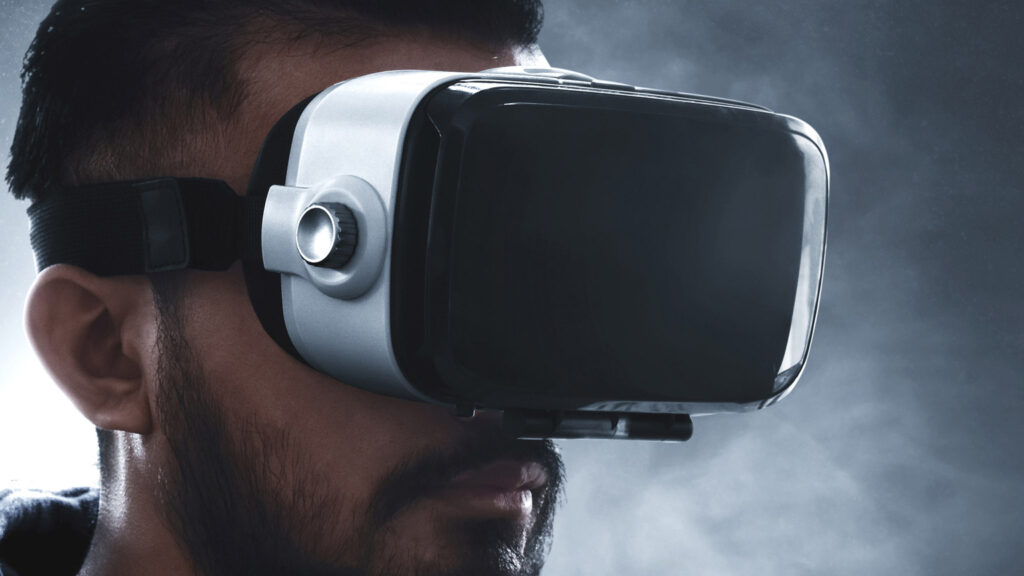David: Hi, this is David and Ax with 360 Immersive. Today we’re going to talk about something that is extremely important. And that is the ability to look at a mental health condition in a whole new way using new technology to build up empathy within social workers, law enforcement, fire, EMS, or just your average person that would like to understand what somebody suffering from this disorder is really experiencing. Ax, let’s talk a little bit about this brand new app and it comes in an app form that we’ll be releasing here in the next couple of weeks.
Ax: Well, it’s…it’s a virtual reality experience that puts you in the position of the person with the mental health issue. And I’ve never seen anything like it. And it’s one of the biggest challenges in communication across the board, but certainly with somebody experiencing a mental health issue, is having any idea of where they’re coming from, what they’re experiencing. So we very often communicate right past each other. This puts the user right in the situation where they’re hearing, they’re seeing, they’re experiencing what it’s like and trying to interact with someone from EMS or law enforcement. And so, I mean, it builds that empathy that I don’t see how you get any other way.
David: Well, the amazing thing is that you know, if you think about it, everybody’s reality is a little different. But your reality and my reality is close enough that we can communicate, we can have a business relationship. And yet somebody that suffers from schizophrenia, their relationship – sorry, their reality is so far beyond because of those auditory – you know, they’re disparaging and they’re – these little voices are telling them that they’re worthless and really horrible things. And they see visions, they see bugs and spectral images and kind of ghostly things.
And if you’re experiencing that, how can your reality and how you relate to somebody – let’s say it’s a law enforcement officer that’s trying to help you. He’s trying to help you and yet your understanding of it is that he’s evil or he’s bad and you’re gonna react accordingly from your reality and unfortunately then he has to react from his reality. So we’re using a brand new technology that can help people understand each other. And that’s a pretty amazing tool.
Ax: It really is. And you were mentioning the law enforcement experience example, which I think is very salient. I mean, in fact, one of the most prolific police trainers, George Thompson, the creator of verbal judo, he went around – he’s passed away since, but he went around the country training thousands and thousands of police officers in verbal judo which is all built on using empathy for de-escalation.
And this is exactly what this app, this experience does is it builds empathy for something that a person may never, ever experience in their lives, but this allows them to step into that role and gain a little understanding. And now that bridge, that gap that you were talking about, that gap is a little less. And the communication can happen a little better.
David: So in this – in our research and actually putting this app together and putting the content together, we happen to have talked to a person that was an ex-pharmaceutical rep that she actually sold the medication that could help people suffering from this disorder. And she said they used to drag a suitcase around that had kind of a pseudo-goggle, but it wasn’t a goggle like we think of today’s VR goggles. It was just a screen and then they put on headphones to try to give doctors and correctional institutions and law enforcement that feeling of what we now would be able to do with virtual reality.
And yet, back then, which was only a few years ago, they had such rudimentary equipment to try to achieve the same thing that we can do with a smartphone and a $30.00 goggle. So we’re looking forward to not only doing this initial test case, which is we’re focusing on schizophrenia, but there are so many other disorders that we can help by using virtual reality technology to let people look into their lives and understand them. You know, it will be a real benefit to help people train for dealing with people in this – with this disorder.
Ax: Yeah, we’ve known what’s needed for years. We’ve known what we need to do and now we have the technology to do it.
David: We have the tools. Well, thank you. Look forward to the release of the new understanding mental health using VR. And thank you.


